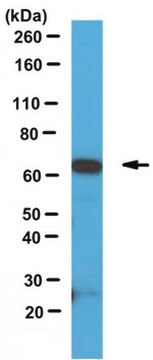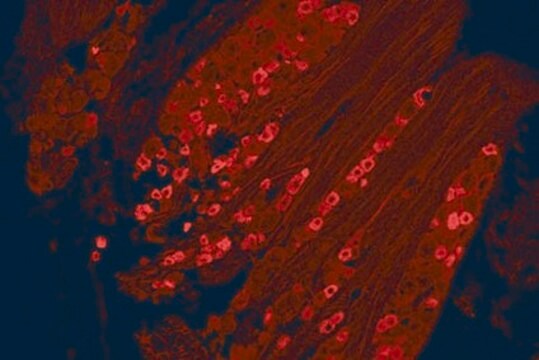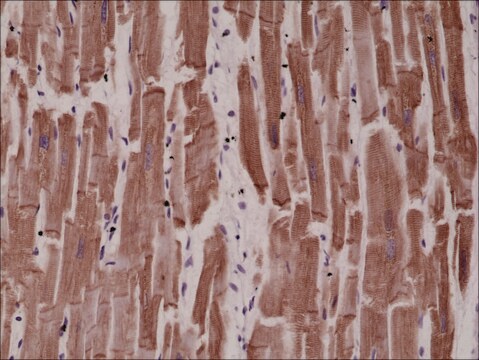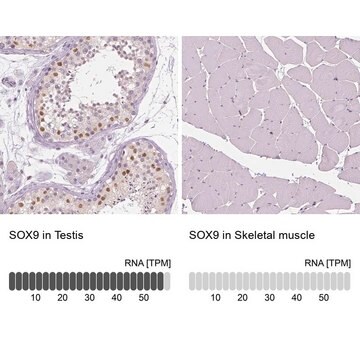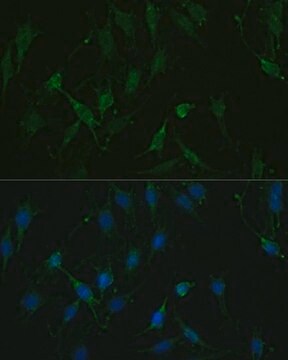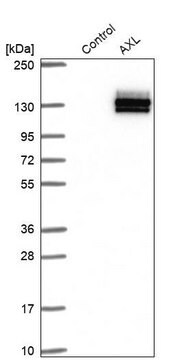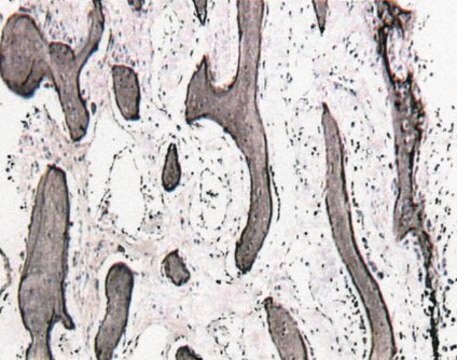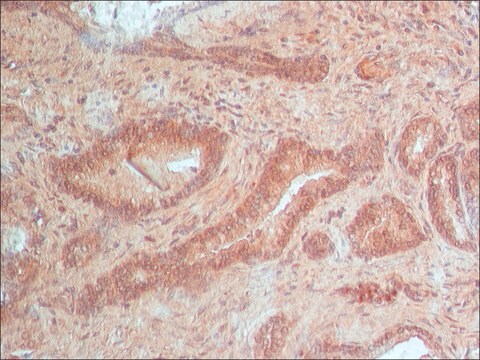ABS526
Anti-Perilipin-4, N-term Antibody
0.1 mg/mL, from rabbit
Synonym(s):
Perilipin-4, Adipocyte protein S3-12
About This Item
Recommended Products
biological source
rabbit
antibody form
affinity isolated antibody
antibody product type
primary antibodies
clone
polyclonal
purified by
affinity chromatography
species reactivity
mouse
concentration
0.1 mg/mL
technique(s)
immunocytochemistry: suitable
immunohistochemistry: suitable
western blot: suitable
NCBI accession no.
UniProt accession no.
shipped in
wet ice
target post-translational modification
unmodified
Gene Information
mouse ... Plin4(57435)
General description
Immunogen
Application
Immunocytochemistry Analysis: A representative lot detected Perilipin-4 in 3T3_L1 cells (Wolins, N. E., et al. (2003). JBC. 278(39):37713-37721).
Western Blotting Analysis: A representative lot detected Perilipin-4 in White Adipose Tissue (WAT) (Wolins, N. E., et al. (2003). JBC. 278(39):37713-37721).
Signaling
Signaling Neuroscience
Quality
Western Blotting Analysis: A 1:1,000 of this antibody detected Perilipin-4 in 10 µg of NIH/3T3-L1 cell lysate.
Target description
Physical form
Storage and Stability
Handling Recommendations: Upon receipt and prior to removing the cap, centrifuge the vial and gently mix the solution. Aliquot into microcentrifuge tubes and store at -20°C. Avoid repeated freeze/thaw cycles, which may damage IgG and affect product performance.
Note: Variability in freezer temperatures below -20°C may cause glycerol containing solutions to become frozen during storage.
Disclaimer
Not finding the right product?
Try our Product Selector Tool.
Storage Class Code
12 - Non Combustible Liquids
WGK
WGK 2
Flash Point(F)
Not applicable
Flash Point(C)
Not applicable
Certificates of Analysis (COA)
Search for Certificates of Analysis (COA) by entering the products Lot/Batch Number. Lot and Batch Numbers can be found on a product’s label following the words ‘Lot’ or ‘Batch’.
Already Own This Product?
Find documentation for the products that you have recently purchased in the Document Library.
Our team of scientists has experience in all areas of research including Life Science, Material Science, Chemical Synthesis, Chromatography, Analytical and many others.
Contact Technical Service